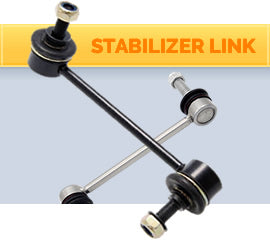Mastering Global Sourcing & Supply Chain Management: Effective Strategies for Overseas Procurement

In an increasingly globalized economy, companies are looking to overseas markets for procurement to gain a competitive edge. Global sourcing and supply chain management play a crucial role in ensuring businesses can efficiently procure materials and products from international suppliers. This article explores the essentials of global sourcing and supply chain management, including vendor evaluation and risk assessment, to help you optimize your overseas procurement process.
- Global Sourcing Strategies
To effectively source from overseas suppliers, businesses must develop a robust global sourcing strategy. Key elements of a successful strategy include:
- Identifying potential suppliers: Research and compile a list of potential suppliers that meet your company's requirements in terms of product quality, delivery times, and pricing.
- Conducting a vendor evaluation: Assess the capabilities, reliability, and financial stability of potential suppliers using criteria such as production capacity, quality control systems, and references from other customers.
- Negotiating contracts: Establish clear terms and conditions with selected suppliers, including pricing, payment terms, and delivery schedules.
- Supply Chain Management
Effective supply chain management is essential for ensuring the smooth flow of goods from overseas suppliers to your business. Key components of supply chain management include:
- Inventory management: Maintain optimal inventory levels to avoid stockouts or excess inventory, which can lead to increased costs and reduced efficiency.
- Logistics and transportation: Coordinate the transportation of goods from suppliers to your facilities, including shipping, customs clearance, and warehousing.
- Quality control: Implement quality control measures at various stages of the supply chain to ensure products meet your company's standards and regulatory requirements.
- Vendor Evaluation
Evaluating vendors is a critical step in the global sourcing process, helping to mitigate risks and ensure a reliable supply chain. Consider the following factors when evaluating potential suppliers:
- Production capabilities: Assess the supplier's ability to meet your production volume and delivery schedule requirements.
- Quality management systems: Ensure the supplier has robust quality control processes in place, such as ISO certification or adherence to industry-specific standards.
- Financial stability: Review the supplier's financial statements and credit ratings to gauge their financial health and ability to fulfill long-term commitments.
- Reputation and references: Gather feedback from other customers and industry sources to gauge the supplier's reliability and track record.
- Risk Assessment
Managing risks is a critical aspect of global sourcing and supply chain management. Consider the following risks and develop strategies to mitigate them:
- Political and economic risks: Assess the stability of the supplier's country, including factors such as political unrest, economic fluctuations, and currency risks.
- Supply chain disruptions: Identify potential disruptions to the supply chain, such as natural disasters, labor strikes, or supplier insolvency, and develop contingency plans.
- Intellectual property protection: Ensure that the supplier has measures in place to protect your company's intellectual property, such as patents, trademarks, and copyrights.
In conclusion, navigating global sourcing and supply chain management requires a thorough understanding of vendor evaluation, risk assessment, and effective strategies for overseas procurement. By implementing these best practices, businesses can optimize their procurement process and gain a competitive advantage in the global market.
- Posted in Automotive, Autoparts, Import, Industry, Supplier












